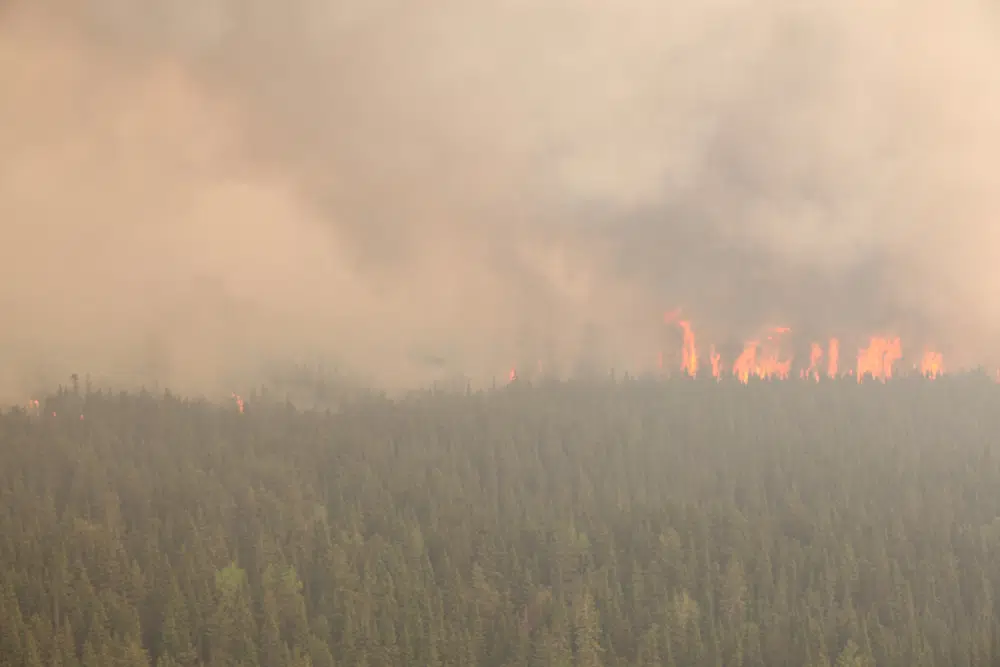Wet weather this spring has improved conditions in Minnesota and northwestern Ontario.
However, experts remain on alert for increased wildfire activity and other climate changes affecting people’s health.
Poor air quality was a frequent topic last year as smoke pushed down from Canadian wildfires.
Researchers say climate change is fueling hotter and drier summers, making forests more susceptible to large fires.
Dr. Bruce Snyder, co-founder of Health Professionals for a Healthy Climate, worries about a repeat summer of thick, hazy smoke in the air creating unhealthy conditions.
“When that happens, people have more respiratory disease; people who have chronic lung disease tend to get sicker,” Snyder explained. “There’s a lot of downstream consequences for people all over the world.”
Snyder notes the transition to cleaner energy sources is complex, but acknowledges pollution events place more emphasis on the need for less reliance on fossil fuels, due to their contributions to a warming planet.
The Minnesota Pollution Control Agency notes the state has had 46 air quality alerts since 2015, and 34 of those were because of wildfire smoke.
In Ontario, there were 13 alerts last year that impacted all parts of the province.
Snyder emphasizes it is not just air pollution from wildfire smoke to worry about.
He points out there are other ways a person’s health can suffer from climate change.
“We’ve got many more dangerous insects — ticks, mosquitoes, and so forth. This is having a profound effect on our wildlife. But also, we’re seeing a lot more progressively rising rates of Lyme disease, of West Nile virus.”
(With files from Mike Moen/Minnesota News Connection)




